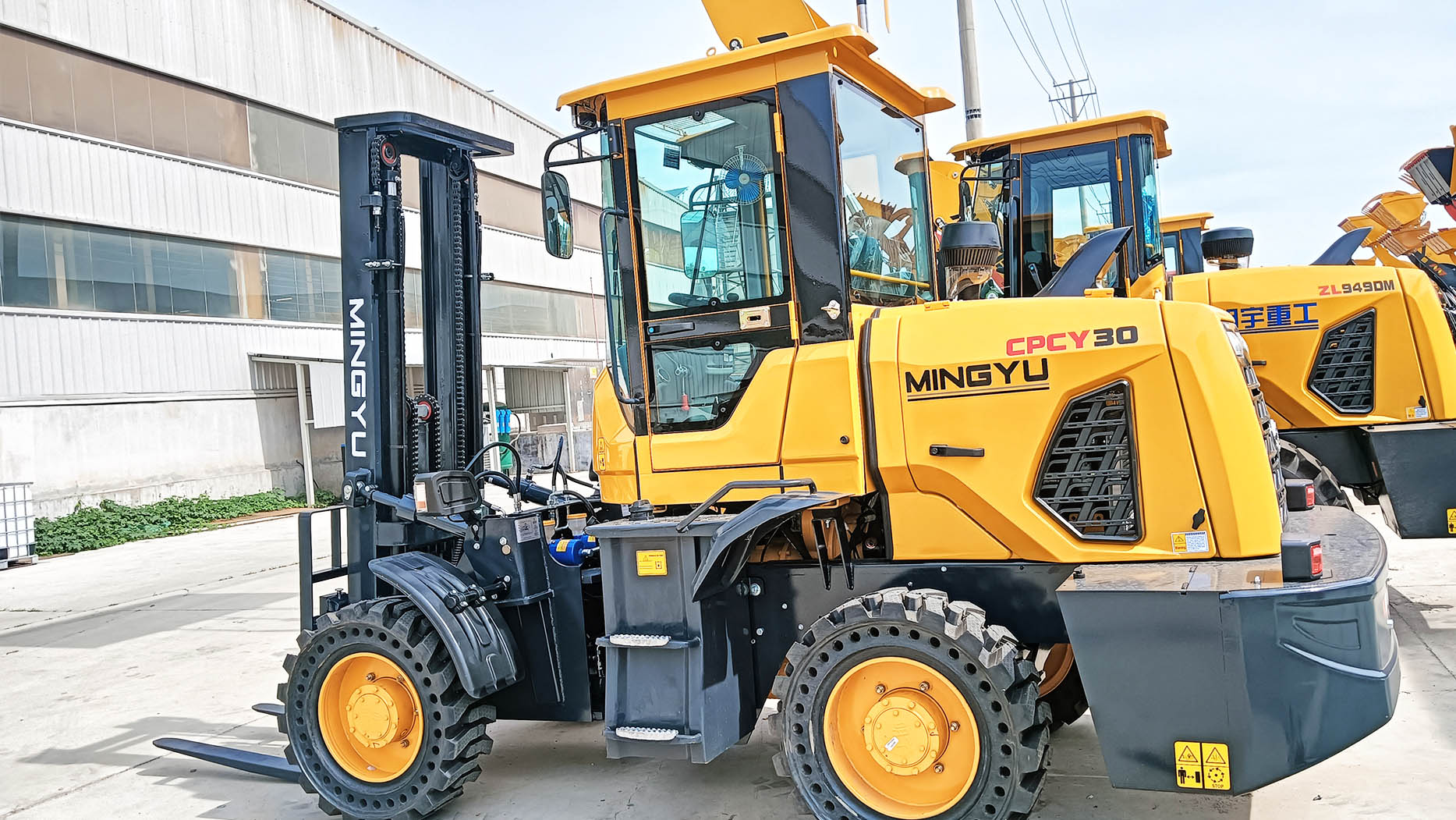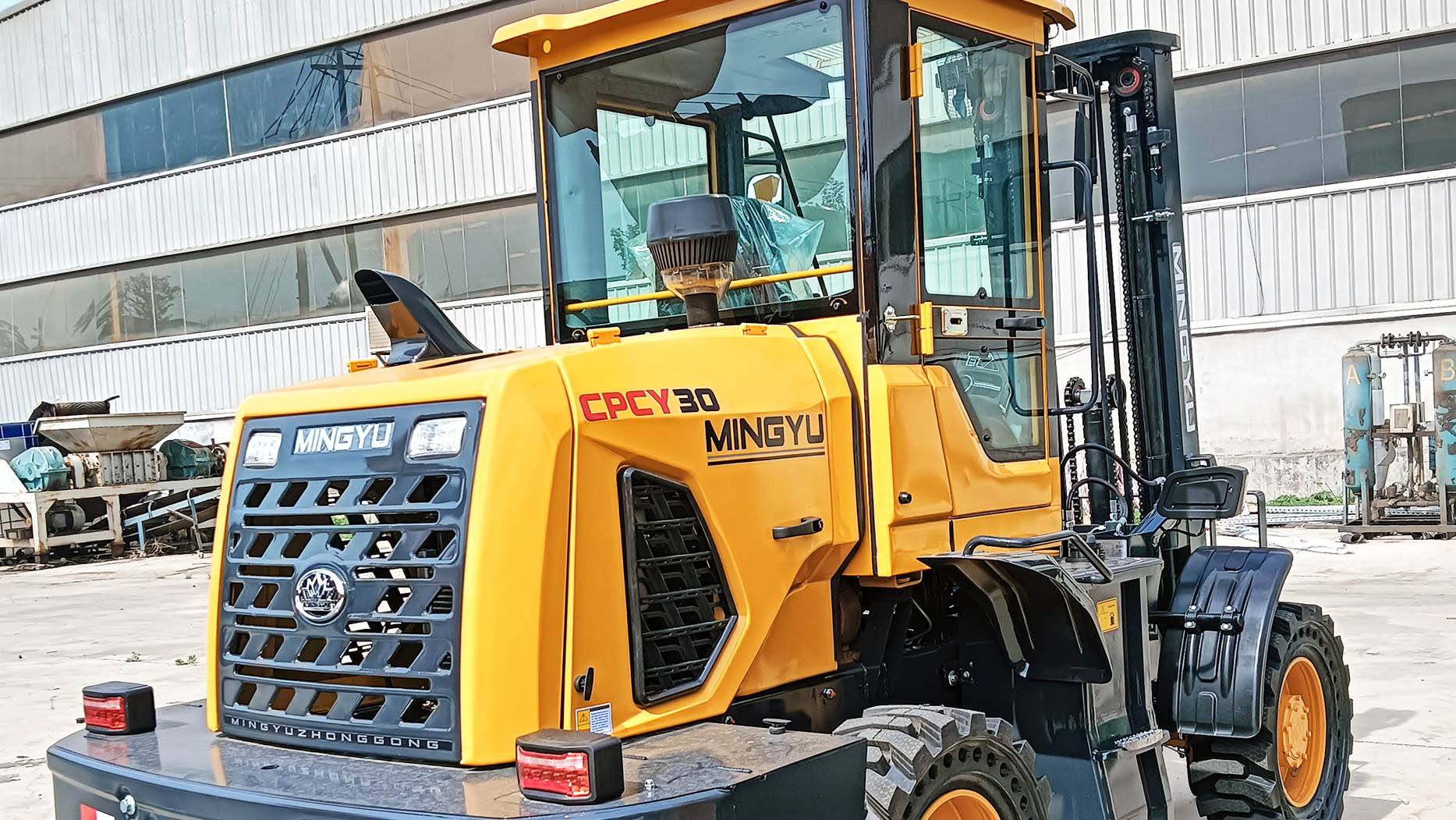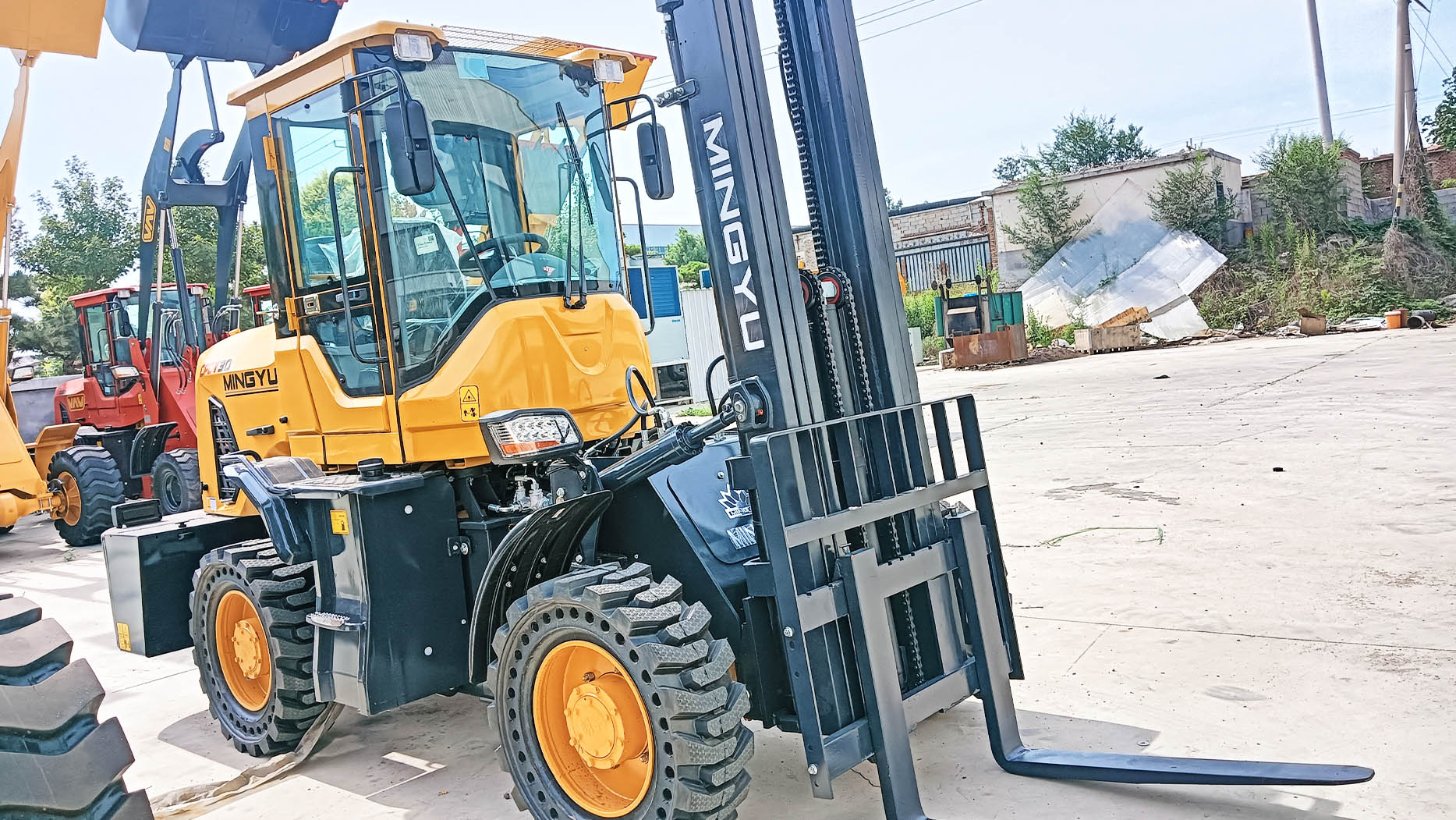Off-road forklifts are the rugged workhorses designed to conquer the most challenging terrains, from muddy construction sites to dusty lumberyards and uneven agricultural fields. Unlike their indoor counterparts, these machines face constant exposure to harsh elements, abrasive materials, and demanding operational conditions. This relentless environment means that maintaining an off-road forklift for longevity isn't just about routine checks; it requires a meticulous and proactive approach to ensure it continues to perform reliably and efficiently for years to come. Neglecting proper maintenance can lead to premature wear, costly breakdowns, and significantly shorten the lifespan of this vital asset.
For businesses and operators who rely on these powerful machines, understanding and implementing a comprehensive maintenance strategy is paramount. It protects your investment, maximizes uptime, and ensures the safety of your personnel.
I. The Foundation: Adhering to Manufacturer's Recommendations
The most crucial step in maintaining any heavy equipment, especially an off-road forklift, is to strictly follow the manufacturer's maintenance schedule and guidelines. Brands like MINGYU/MYZG provide detailed manuals outlining specific service intervals (based on operating hours or calendar time, whichever comes first) and the tasks required at each stage. These schedules are engineered to address the unique wear patterns and operational stresses specific to their machines.
Understanding the Manual: Don't just skim it. Familiarize yourself with the recommended fluid types, capacities, torque specifications, and service procedures.
Logging Maintenance: Keep meticulous records of all service performed, including dates, operating hours, parts replaced, and fluids added. This history is invaluable for troubleshooting, warranty claims, and significantly boosts resale value if you put the off-road forklift up for sale in the future.

These services, performed by qualified technicians at specified hour or calendar intervals, are crucial for replacing wear items and conducting in-depth inspections.
A. Every 250-Hour / Quarterly Service:
This is typically a minor service but essential for ongoing machine health.
Engine Oil and Filter Change: Critical for the performance and longevity of a diesel forklift engine. Regular changes remove contaminants and maintain lubrication properties.
Fuel Filter Replacement: Prevents contaminants from damaging sensitive fuel injectors and pumps. Given the quality of diesel fuel and potential for debris on rough sites, this is vital.
Air Filter Inspection/Replacement: Off-road forklifts operate in dusty environments. A clogged air filter restricts airflow, reducing engine performance and increasing fuel consumption. Replace as needed, or more frequently in very dusty conditions.
General Lubrication: Thoroughly grease all pivot points, pins, and moving parts not covered by daily checks. This reduces friction and wear on critical components.
Cooling System Check: Inspect coolant concentration (antifreeze/corrosion inhibitors), hoses, and radiator fins. Clean radiator fins of debris buildup to prevent overheating.
Battery Terminal Cleaning: Prevent corrosion and ensure good electrical contact for starting.
Belt Inspection: Check drive belts for proper tension and signs of cracking or wear.
Electrical System Check: Inspect wiring harnesses for damage, loose connections, or chafing. Test all warning lights and gauges.
B. Every 500-Hour / Bi-Annual Service:
This is a more comprehensive service addressing vital systems.
All 250-hour service items.
Hydraulic System Filter Replacement: Maintains the cleanliness of the hydraulic fluid, protecting pumps, valves, and cylinders from contamination.
Transmission Fluid and Filter Check/Change: Essential for smooth gear changes and transmission longevity. Follow manufacturer guidelines closely.
Differential/Axle Fluid Check/Change: Inspect and top up/change gear oil in the axles, especially important for 4WD off-road forklifts that put more stress on these components.
Brake System Inspection: Detailed check of brake pads/shoes, drums/rotors, master cylinder, and brake lines. Adjust or replace components as necessary.
Steering System Inspection: Check all steering components (tie rods, kingpins, articulation points for articulated models) for wear, looseness, or damage.
Load Chain Inspection: Use a chain wear gauge to check mast chains for stretch and wear. Lubricate thoroughly.
Wheel Bearings: Inspect for wear or looseness. Re-grease if applicable.
C. Every 1,000-Hour / Annual Service:
This is a major service that often includes deeper inspections and fluid changes.
All previous service items.
Hydraulic System Fluid Change: A complete replacement of hydraulic fluid (along with filters) is often recommended to remove accumulated contaminants and ensure optimal hydraulic performance.
Cooling System Flush and Fill: Replace coolant and inspect the entire cooling system for blockages or leaks.
Brake System Overhaul: More extensive inspection and potential replacement of brake components.
Load Chain Replacement: While inspected at 500 hours, chains are typically replaced at 2,000-4,000 hours or if wear gauges indicate excessive stretch. This is a critical safety item.
Engine Valve Adjustment: (If applicable to your specific diesel forklift engine model).
Fuel Injector Inspection: Check for proper spray patterns and overall function. Poorly functioning injectors can reduce power and increase fuel consumption.
Structural Inspection: Conduct a thorough visual inspection of the chassis, frame, and mast for any signs of cracks, stress fractures, or welding integrity issues caused by constant work in rough terrain.
 IV. Specialized Maintenance for Off-Road Forklifts
IV. Specialized Maintenance for Off-Road ForkliftsBeyond general forklift maintenance, off-road forklifts have unique requirements due to their environment and design.
Emissions System Management: Modern diesel forklift engines often incorporate complex emission control systems (e.g., Diesel Particulate Filters (DPF) and Selective Catalytic Reduction (SCR) requiring Diesel Exhaust Fluid (DEF)).
DPF Regeneration: Ensure DPF regeneration cycles (passive or active) are occurring as needed to burn off accumulated soot. Ignoring warning lights related to the DPF can lead to severe damage and costly replacement.
DEF Levels: For SCR systems, maintaining the correct DEF level is critical for the system to function correctly and for the engine to operate at full power.
Contaminant Control: Off-road forklifts work in dusty, muddy, and dirty conditions.
Frequent Air Filter Checks: Essential. Consider pre-cleaners if working in extremely dusty environments.
Radiator/Oil Cooler Cleaning: Regularly clean fins to ensure proper heat dissipation and prevent overheating.
Undercarriage Cleaning: Periodically clean mud and debris from the undercarriage, axles, and steering components to prevent accumulation that can cause friction, corrosion, and hide issues.
Tire Management: Given the rough terrain, monitor tire wear and damage even more diligently. Consider foam-filled or solid tires for puncture-prone environments, but understand they can impact ride comfort and machine weight.
Lubrication in Harsh Conditions: More frequent greasing might be necessary if the off-road forklift is often exposed to water, mud, or extreme dust, as these elements can wash away or contaminate lubricants.
Articulation Joint (if applicable): For articulated off-road forklifts, the central articulation joint is a high-stress area requiring meticulous lubrication and inspection for wear or play.
 V. Investing in Quality: Parts and Brands
V. Investing in Quality: Parts and BrandsGenuine Parts: Always use genuine OEM (Original Equipment Manufacturer) or high-quality aftermarket parts. Substandard parts can compromise performance, safety, and longevity.
Reputable Fluids: Use the exact type and grade of oils, coolants, and hydraulic fluids specified by the manufacturer.
Manufacturer Support: Brands like MINGYU/MYZG provide not only the forklifts but also comprehensive parts and service support. Building a relationship with your dealer ensures you have access to expert technicians and genuine parts, which is crucial for the long-term health of your off-road forklift.
Conclusion
Maintaining an off-road forklift for longevity is an investment in its continued performance, safety, and your business's bottom line. It goes beyond simple fixes, demanding a dedicated regimen of daily operator checks, adherence to strict scheduled preventative maintenance, and specific attention to the challenges posed by its operating environment. By prioritizing fluid quality, air filtration, tire integrity, hydraulic health, and diligent lubrication, and by working closely with reputable service providers or dealers from brands like MINGYU/MYZG, you can significantly extend the life of your off-road forklift, ensuring it remains a powerful and reliable asset for years to come, maximizing its operational value and ensuring it's in prime condition if it ever becomes a forklift second hand for sale.
Post time:Jul.02.2025
